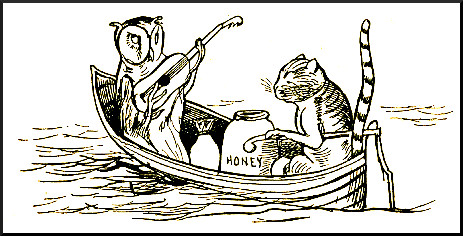Dorothy Parker? Oscar Wilde? Mike Porter? Arch Ward? Anonymous?

Question for Quote Investigator: Composing poetry is rarely a lucrative occupation. A traditional moralistic adage has been transformed into a comical warning for versifiers:
- Crime does not pay.
- Rhyme does not pay.
This word play has been credited to the prominent wit Dorothy Parker who published multiple collections of poetry. Would you please explore this topic?
Reply from Quote Investigator: The earliest close match located by QI appeared in 1934 within a column by Martin A. Gosch in the “Evening Courier” of Camden, New Jersey. Boldface added to excerpts by QI:1
… a prize gag from colleague Mike Porter: Edith Murray, the CBS songbird, started out in life as a poet, but found that Rhyme does not pay!!
Dorothy Parker received credit for the quip by June 1938 as shown further below, but it was already in circulation.
Here are additional selected citations in chronological order.
In 1880 a different pun about impecunious poets appeared in a Chambersburg, Pennsylvania newspaper. The saying “A poet is born, not made” was transformed into quip about poets who composed verse for political campaigns:2
A campaign poet is born, not paid.
A separate QI article about “A Poet Is Born, Not Paid” is available here.
Oscar Wilde died in 1900. In 1916 his friend, Frank Harris, described a convivial gathering with the famous wit during which he delivered a pertinent pun:3
The entertainment started with some humorous play on words. One of the company would say something obvious or trivial, repeat a proverb or commonplace tag such as, “Genius is born, not made,” and Oscar would flash in smiling, “not ‘paid,’ my dear fellow, not ‘paid.'”
A separate QI article about “Genius Is Born, Not Paid” is available here.
In January 1934 the quip under examination was printed by a columnist within a New Jersey newspaper as noted previously.
In January 1938 the “Brooklyn Daily Eagle” of New York printed the joke as an interrogative sentence without an attribution:4
Afterthought: Who said rhyme doesn’t pay?
In March 1938 the popular “Chicago Tribune” columnist Arch Ward printed an item from a correspondent that included the pun:5
. . . after four months of unpublished contribs I completely broke down and am forced to admit that “Rhyme Doesn’t Pay.”
Bill o’ the Builders.
In June 1938 columnist by Richard E. Hayes attributed the pun to Dorothy Parker:6
Down in Hollywood the other day someone asked Dorothy Parker why she has written no verse recently. Dorothy answered that she has “discovered that rhyme doesn’t pay.”
Also, in June 1938 columnist Paul Harrison credited Parker:7
Dorothy Parker hasn’t penned any poetry lately. Asked why, she said, “Because I have learned that rhyme doesn’t pay”.
In 1969 “The Complete Book of Children’s Theater” by Vernon Howard including an instance:8
A famous poet was responsible for one of our best-known proverbs. He wrote poetry all day long but was unable to sell it. He sadly remarked, “Rhyme does not pay.”
In conclusion, the first instance of this pun located by QI was attributed to Mike Porter in January 1934. Thus, QI tentatively credits Porter although the remark may have already been circulating. Dorothy Parker received credit by 1938, but that is a late date which only provides weak evidence. Perhaps future research will clarify the provenance.
Image Notes: Illustration for Edward Lear’s 1871 poem “The Owl and the Pussy-Cat” which begins with the following lines:
The Owl and the Pussy-cat went to sea
In a beautiful pea-green boat,
They took some honey, and plenty of money,
Wrapped up in a five-pound note.
Acknowledgement: Great thanks to researcher Barry Popik whose tweet led QI to formulate this question and perform this exploration. Popik has a helpful entry on this topic posted on his website at barrypopik.com. The entry begins with the January 24, 1938 citation.
Update History: On March 29, 2025 the format of the bibliographical notes was updated.
- 1934 January 16, Evening Courier, By Gosh! by Martin A. Gosch (Courier-Post Radio Editor), Quote Page 16, Column 3, Camden, New Jersey. (Newspapers_com) ↩︎
- 1880 September 22, Valley Spirit, Borrowed Humor, Quote Page 1, Column 8, Chambersburg, Pennsylvania. (Newspapers_com) ↩︎
- 1916 October, The Phoenix, Volume 5, Number 5, Oscar Wilde as a Talker, (Excerpt from Oscar Wilde: His Life and Confessions by Frank Harris), Start Page 146, Quote Page 147, Published by Michael Monahan, South Norwalk, Connecticut. (Google Books Full View) link ↩︎
- 1938 January 24, Brooklyn Daily Eagle, Radio Dial Log, Quote Page 24, Column 3, Brooklyn, New York. (Newspapers_com) ↩︎
- 1938 March 21, Chicago Tribune, In the Wake of the News by Arch Ward (Chicago Tribune Press Service), Quote Page 19, Column 7, Chicago, Illinois. (Newspapers_com) ↩︎
- 1938 June 16, The Seattle Daily Times, Amusements Along Film Row by Richard E. Hayes, Quote Page 8, Column 7, Seattle, Washington. (Newspapers_com) ↩︎
- 1938 June 25, Edwardsville Intelligencer, Paul Harrison in Hollywood, Quote Page 2, Column 2, Edwardsville, Illinois. (Newspapers_com) ↩︎
- 1969, The Complete Book of Children’s Theater by Vernon Howard, Section 5: Humorous Monologues, Quote Page 223, Doubleday & Company, Garden City, New York. (“sell” is misspelled as “see” in the original text) (Verified with scans) ↩︎